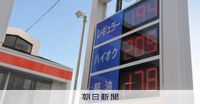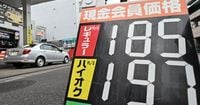In a significant shift in policy, the Japanese government has announced that the subsidy for gasoline prices will be set at zero yen starting April 17, 2025. This marks the first time since the subsidy program began in January 2022 that the amount has dropped to zero, reflecting recent decreases in crude oil prices.
According to the Ministry of Economy, Trade and Industry, the subsidy amount for the period from April 17 to April 23 will be zero yen, primarily due to the expectation that the average gasoline price will fall below the threshold of 185 yen per liter, which is the benchmark for providing subsidies. The average price of gasoline was reported at 186.5 yen per liter as of April 14, 2025, but it is predicted to decline to approximately 182.7 yen without the subsidy.
This decision comes after a period where the subsidy was adjusted weekly based on market trends, including fluctuations in crude oil prices and the value of the yen. For the week leading up to the subsidy cutoff, the amount was set at 4.4 yen per liter. However, due to the sharp drop in crude oil prices and the strengthening yen, the government determined that continuing the subsidy was no longer necessary.
Notably, the price of U.S. West Texas Intermediate (WTI) crude oil has seen a significant decline, dropping below 60 dollars per barrel for the first time in four years following the announcement of new tariffs by the U.S. administration. This has raised concerns about a potential slowdown in the global economy, which could further decrease demand for crude oil.
As the subsidy program approaches its end, discussions about new price control measures have begun to emerge. The government had initially planned to phase out the subsidy by the end of March 2025, but has since opted to extend it beyond that date. The ruling coalition, which includes the Liberal Democratic Party (LDP), Komeito, and the Democratic Party for the People, has agreed to implement a fixed subsidy amount starting in June as a temporary measure until the provisional gasoline tax rate is abolished.
Experts suggest that while the current situation may seem favorable due to lower prices, there are underlying concerns regarding the long-term transition away from fossil fuel dependence. The recent developments indicate that while consumers may benefit from reduced gasoline prices in the short term, the broader implications for energy policy and economic stability remain uncertain.
In summary, the government's decision to implement a zero subsidy for gasoline prices starting April 17 is a historic first, reflecting the complexities of global oil markets and domestic economic policies. As the situation evolves, stakeholders will be closely monitoring market trends and government responses to ensure that consumer needs are met while also addressing the pressing challenges of energy sustainability.








